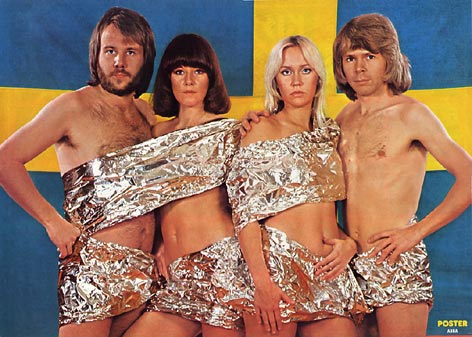Previously in this blog I have raged against those English speakers who live here and don't speak the language. After a good few years here, I realize this was grossly unfair.
Sweden does not provide an ideal language learning environment for English speakers. Necessity is the mother of invention, and in many situations it is simply not necessary for English speakers to learn Swedish.
If English speaking immigrants have some kind of technical, IT or 'international' job where the product or line of work is basically 'in English', then English becomes the go-to language. Employers might recruit heavily from non-Swedish residents to fill these positions, in which case English naturally tends to become the lingua franca.
For bar jobs you would have thought interaction in Swedish would be essential, right? Nope. Swedish is often not a requirement. Wander into any Irish or English theme-bar (especially in Stockholm) and you'll often find an English speaker behind the bar who can't manage anything but the simplest Swedish. I remember the time I started speaking Swedish in a pub and was told "we don't really speak Swedish here".
My first reaction — which was judgemental and unfair — was to condemn these immigrants as arrogant, lazy and engaging in some kind of cultural colonialism. Whilst that might possibly be the case for a rare few, I don't believe this applies to the vast majority.
The truth is that Sweden itself is to blame for this state of affairs. Sweden sets the requirements that immigrants fulfill.
In France you need French, so you learn French. It's a requirement. End of story. In Sweden, this is simply not the case. In fact, you can even become Swedish without speaking a word of the language (although the government finally agreed that there would be a language test for citizenship in 2019 and aimed to put forward a proposal in October 2020, but I imagine the pandemic pushed it down their To Do list!)
I personally feel that if you work in a bar in Sweden, you should be able to converse in Swedish. But who cares what I think? I'm not the one doing the hiring! If the employers really cared, then it'd be a necessity. It ain't. So why blame the employees?
I am thankful I had a reason to learn Swedish — my father-in-law didn't speak English, so I had to learn to be able to speak to him. Without that, I'm not sure if I would have learned.

























